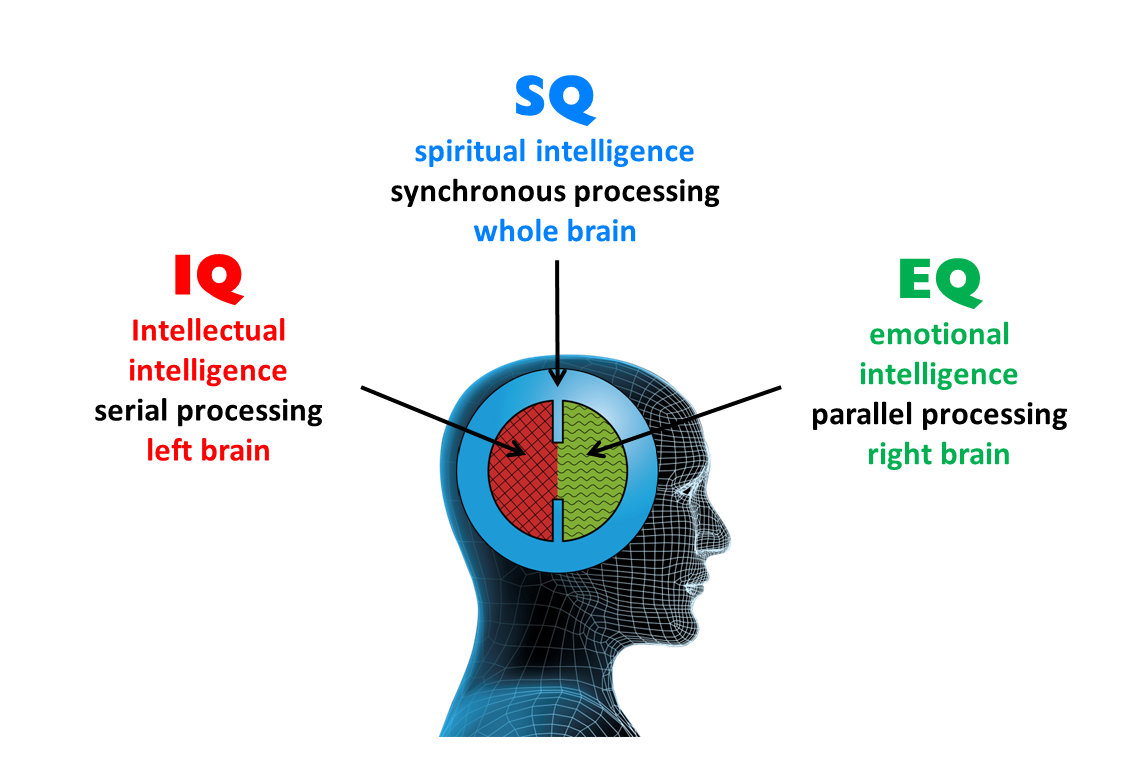Cultivating Spiritual Intelligence
Worldviews matter as they provide the context for understanding and interpreting the key questions of life. They are a way of understanding and conceiving the world and contain the assumptions that we hold to be true about reality. At the end of the first quarter of the 21st century, we stand somewhat bewildered and disoriented between worldviews. Richard Tarnas has described our time as a “transitional era when the old cultural vision no longer holds and the new has not yet constellated.”1 Similarly, Charles Taylor said we are living in a time of “cross pressures” between the narratives of science-based materialism and an emerging type of spirituality.2
The emerging Participative worldview noted by these scholars restores a sense of sacredness and enchantment to the world, albeit of a different kind to that which existed in previous eras. The shift is away from the previously dominant materialist view towards an ensouled cosmos informed by a new spiritual and archetypal consciousness consistent with the insights from quantum and complexity science.
Worldviews also give primacy to and reward different types of intelligence, our ability to solve problems and think about them in different contexts. Iain McGilchrist, for example, argues that the left and right hemispheres of the brain have radically different worldviews and has persuasively shown how the western worldview has been underpinned and become dominated by the “left brain” responsible for Rational Intelligence (IQ), at the expense of the “right brain” hemisphere, responsible for more systemic and holistic ways of thinking.3
A key barrier is that the education system still focuses primarily on IQ. Standardized testing, for instance, remains the gold standard within school systems. And while universities may acknowledge the importance of “soft skills” in their list of graduate attributes, little is being done in the way of developing them, with the traditional lecture style pedagogy remains the norm. Even adding Emotional Intelligence (EQ) popularized in the 1990s, the ability to empathize and display compassion with another’s situation, the dominant mode of thinking remains within the confines of the existing mechanistic worldview. These types of intelligence remain insufficient to the task of enabling people to deal with the increased change, ambiguity, and complexity of our times.
 Educational institutions need to complement the technical IQ-based skills with the competencies of Spiritual Intelligence (SQ), the “ability to access higher meanings, values, abiding purposes, and unconscious aspects of the self and to embed these meanings, values and purposes in living a richer and more creative life.”4 We need to move from educating “Newtonian thinkers” who use their brains in a partial, left-brain dominated way, to “Quantum thinkers” who use their whole brains, combining the skills of left and right hemispheres. Table 1 summarizes some of the key aspects of SQ.
Educational institutions need to complement the technical IQ-based skills with the competencies of Spiritual Intelligence (SQ), the “ability to access higher meanings, values, abiding purposes, and unconscious aspects of the self and to embed these meanings, values and purposes in living a richer and more creative life.”4 We need to move from educating “Newtonian thinkers” who use their brains in a partial, left-brain dominated way, to “Quantum thinkers” who use their whole brains, combining the skills of left and right hemispheres. Table 1 summarizes some of the key aspects of SQ.
Table 1 Key characteristics of Spiritual Intelligence5
| Aspect | Spiritual Intelligence (SQ) |
| Theoretical underpinning | Complexity Theory; Transpersonal Psychology; Neuroscience. The term spiritual is used in a biological sense and does not necessarily imply any religious belief system. |
| Relationship to other Intelligences |
|
| Situations where best applied |
|
| Key competencies & principles |
|
How do we best cultivate the SQ required to facilitate the transition to and operate within the emerging participative worldview? SQ requires giving emphasis to modes of learning that are experiential and contemplative rather than analytical and cognitive and a recognition that skill development and intelligence does not result solely from formal education, age-based experience or intellectual prowess. In short, nurturing SQ requires multiple ways of knowing, a pedagogy based on engaging the head, heart, and accessing our inner experience and intuitive voice. Traditional approaches to education primarily privilege the head and need to be balanced by approaches that facilitate the “co-creative participation of all human dimensions at all stages of the inquiry and learning process…body, vital, heart, mind, and consciousness.”6
The challenge is how to implement approaches that are not solely “head-based” in our institutions of learning. Table 2 summarizes some of the key practices that facilitates the cultivation of SQ and can contribute to the emergence of a Participatory worldview.
Table 2 Cultivating Spiritual Intelligence7
| Reflecting practices
Focus on self-development & growth from inner reflection |
|
| Connecting practices
Focus on experiencing unity with others |
|
| Respecting practices
Focus on contributing to the wider society/planet |
|
| Expressing practices
Focus on creativity, accomplishment & influence |
|
Capitalism (which developed from IQ thinking) has provided many benefits but also contributed to significant social and environmental challenges across the globe. We require a deep and cultivated SQ to participate in the communal journey of leadership in this century of awakening. The current educational model is no longer fit for purpose and alternative pedagogies more aligned to the emergence and growth of a participative worldview are required. While the traditional rational intelligence (IQ) used to solve logical or strategic problems is important, as is the ability to empathize and display compassion (EQ), they need to be underpinned by SQ—the ability to diagnose and solve problems of meaning, value, and purpose.
References
[1] Richard Tarnas, Cosmos & Psyche – Intimations of a new World View, New York: Plume, 2007, p. 26
[2] Charles Taylor, A Secular Age, Mass.: Harvard University Press, 2007, p.61.
[3] Iain McGilchrist, The Master and His Emissary: The Divided Brain and the Making of the Western World, London: Yale University Press, 2009.
[4] D. Zohar & I. Marshall, Spiritual Capital – Wealth we can live by, London: Bloomsbury Publishing, 2004, p.3
[5] Adapted from Zohar & Marshall, 2004.
[6] J.N. Ferrer., Romero, M.T & Albareda, R.V, ‘Integral Transformative Education – A Participatory proposal’, Journal of Transformative Education, 3(4), 2005, p.7
[7] Adapted from G. Zappalà, ‘A Meaningful Participatory Model of Conscious Leadership: Cultivating Spiritual Intelligence for Conscious Capitalism’, in Michel Dion & Moses Pava (eds). The Spirit of Conscious Capitalism: Contributions of World Religions and Spiritualities, Springer International, forthcoming 2021.






